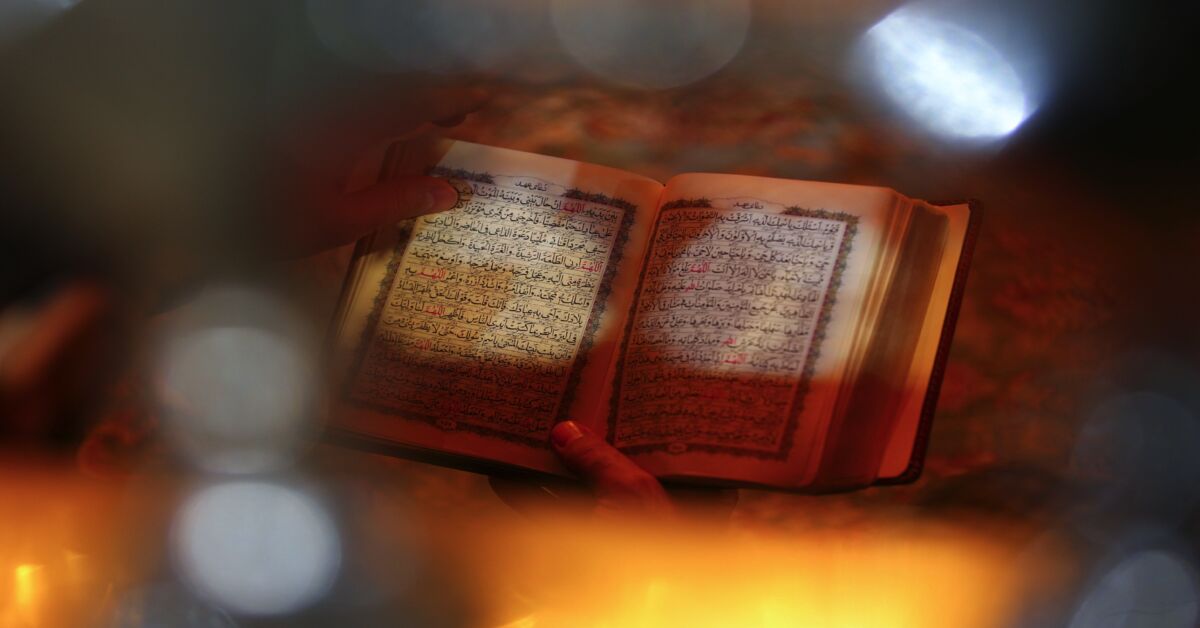
CAIRO — Egyptian Minister of Endowments (Awqaf) Mohamed Mokhtar Gomaa announced on Dec. 1 the start of the Quran’s translation into Hebrew to counter misinterpretations and mistranslations. He said academic professors and specialized translators, whom he did not name, will be involved in accurate translations that befit meanings in the Quran.
“The ministry is working to translate the meanings of the Quran into foreign languages through the translation of a book called al-Muntakhab that includes an interpretation of the Quran verses,” Abdullah Hassan, spokesperson for the ministry, told Al-Monitor by phone. He said the translation is not about the Quran itself.
"The Quranic verses will remain as are in Arabic, but the interpretation of the verses is the one that will be translated into different languages,” he added. “Over the past years, the interpretation of the Holy Quran was translated into a number of foreign languages, especially English, French, Chinese, Russian and Indonesian."
He noted that the ministry “will be finalizing the translation and interpretation of the Quran into the Greek language over the next two weeks, before starting to translate the interpretation of the Quran into the Hebrew language to make it available to everyone willing to study and have a deeper and accurate understanding of the Quran in Hebrew.”
Commenting on the misinterpretations in previous translations of the Quran, the official said, “There are Orientalists (specialists who learn languages and cultures of Southeast and East Asia ) who inaccurately translated the Holy Quran, especially into the Hebrew language. The goal behind this translation is to have a correct text based on a moderate enlightened thinking, free of any mistranslation, misinterpretations or extremist interpretation.”
Speaking to TEN satellite channel on Dec. 1, the minister said, “The goal behind translating the meaning of the Quran into Hebrew is to correct the wrongs made over the past years. … Following a discussion with a number of intellectuals from different countries, we found out that the Hebrew translation of the meanings of the Quran by some Orientalists was marred by major mistakes, which could be intentional or due to inaccuracy.”
Al-Roeya newspaper reported on Oct. 15, 2020, “Over the past centuries, there were several initiatives to translate the meanings of the Holy Quran into Hebrew in the Jewish arena. According to specialists, they varied in terms of accuracy and linguistic and stylistic skills in conveying the meanings of the Quran to Hebrew readers.”
Ahmed al-Bahansi, an Egyptian researcher focusing on Jewish studies, explained in a report published in mid-October 2018 that “Jewish scholars, translators and Orientalists took the lead in translating into Hebrew the meanings of the Holy Quran, either partially or completely, for mainly religious and political reasons so as to debate with Muslims about religion and fight them intellectually and politically.”
In October 2017, Raseef 22 wrote that “the first translation [of the Quran] was done by Jacob ben Israel ha-Lev. It was not a direct translation from Arabic but rather from an Italian version that is, in turn, a translation of the meaning of the Quran from Latin.”
The rapporteur of the language, translation and civilization dialogue committee at the Supreme Council for Islamic Affairs, Saeed Attia, told Al-Monitor by phone, “The committee monitored seven Hebrew translations of the Quran’s interpretations, all made by groups and individuals in Israel. But the Israeli translator is not fully familiar with the Arabic language, which made the translation inaccurate.”
He added, “I submitted to the [Egyptian] endowment minister a proposal to translate “al-Muntakhab fi Tafseer al-Quran” into Hebrew, after translating it into several languages including the Greek language most recently. The Greek text is being finalized.”
He noted there are several objectives behind translating the interpretation of the Quran into foreign languages. It mainly seeks to enable an exchange of information and transfer of Islamic knowledge and culture from Arab countries to abroad.”
Attia said of the translation of the interpretation of the Quran into Hebrew, “Translation takes time, and it may take us about two years to complete the Hebrew text.”
Abdul Karim Saleh, head of the Quranic interpretation committee at Al-Azhar Islamic Research Academy, told Al-Monitor, “The decision to translate the interpretation of the Quran into more than one language helps spread the correct concept of the Islamic religion and to communicate it to the West.”
Saleh explained that “some translations of the interpretation of the Quran are inaccurate. Hence, translations into foreign languages consist of a proactive step to prevent any mistranslation or misinterpretation."
No comments:
Post a Comment